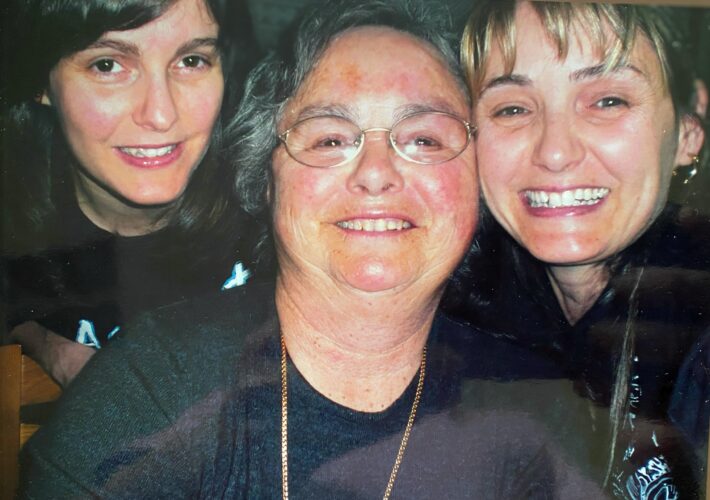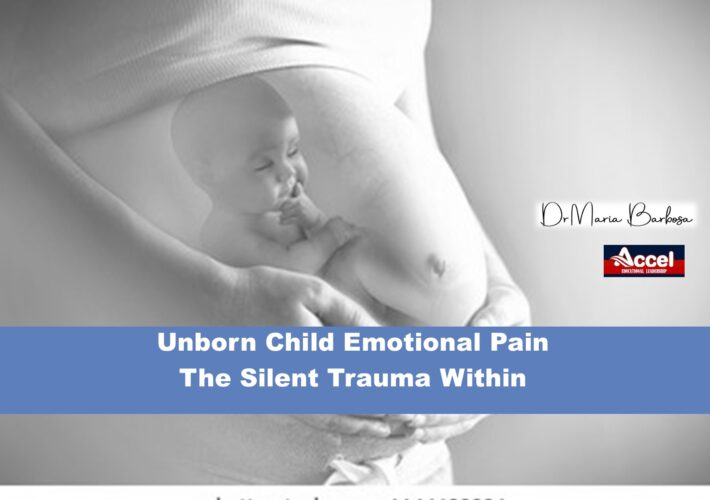How To Deal With, Toxic Relatives During Thanksgiving
Thanksgiving is a time for gratitude, reflection, and the gathering of loved ones. However, for many of us, it can also be a time when tensions rise, and conflicts with difficult family members come to the forefront. Dealing with challenging relatives during Thanksgiving can be a delicate balancing act, but with the right strategies, you can ensure a peaceful and enjoyable holiday celebration. In this comprehensive article can help navigate tricky family dynamics and make your Thanksgiving gathering a harmonious one.
Practice “I” Statements: Effective communication is key to resolving family conflicts. When faced with challenging relatives, it’s essential to express your feelings and concerns without placing blame. One powerful technique is to use “I” statements. Instead of saying, “You always ruin Thanksgiving,” try saying, “I feel upset when conflicts arise during Thanksgiving.” This approach allows you to convey your emotions while avoiding a defensive response from the other party.
Identify Defense Mechanisms: Both you and your family members may have defense mechanisms that come into play during Thanksgiving gatherings. These defense mechanisms can include denial, projection, or avoidance. Recognizing these patterns in yourself and your relatives can help diffuse potential conflicts. For instance, if you notice a family member projecting their insecurities onto you, respond with empathy and understanding rather than defensiveness.
Ask for-and Accept-Help: Don’t be afraid to seek assistance from other family members or friends when dealing with difficult relatives. Enlist the support of trusted individuals who can help mediate conflicts or provide emotional support. Sometimes, an outside perspective can bring clarity to the situation and defuse tension effectively.
Bring in Co-Conspirators and Buffers: If you anticipate friction with specific family members, consider inviting other relatives or friends who can act as buffers. Having additional people around can divert attention away from potential conflicts and create a more positive atmosphere. Engage your co-conspirators in light-hearted conversations and activities to ensure a pleasant Thanksgiving experience for everyone.
You Don’t Necessarily Need to Turn All the Way Up: Thanksgiving is a time for celebration, but it doesn’t mean you have to overindulge in arguments or confrontations. Choose your battles wisely and prioritize harmony over being right. Sometimes, letting go of minor disagreements can lead to a more enjoyable holiday for everyone involved.
Practice Mindfulness: Mindfulness is a powerful tool for managing difficult family situations during Thanksgiving. Mindfulness involves staying present in the moment, acknowledging your emotions, and responding thoughtfully rather than reactively. When you feel tension rising, take a deep breath, focus on the present, and remind yourself of the true meaning of Thanksgiving-gratitude and togetherness.
How to Survive a Toxic Family During the Holidays: By Maintain Your Sanity
The holiday season is meant to be a time of joy, togetherness, and celebration. However, for those dealing with toxic family dynamics, it can often feel like a daunting challenge. Toxic relatives can turn what should be a happy time into a source of stress and anxiety. But fear not! In this guide, we’ll explore eight practical strategies to help you not only survive but also thrive during the holidays despite toxic family members.
1. Set Realistic Expectations: One of the keys to maintaining your sanity during the holidays is to set realistic expectations. Understand that your family may not suddenly change their behavior just because it’s a special occasion. Accept that imperfections and conflicts are part of life, even during the holidays. By managing your expectations, you can reduce disappointment and frustration.
2. Know Your Limits: Knowing your limits is crucial when dealing with toxic family members. Determine in advance what you can tolerate and what you can’t. Set boundaries and stick to them. If a certain topic or behavior triggers you, be prepared to assertively but calmly communicate your boundaries. Remember, it’s okay to excuse yourself from a situation if it becomes too uncomfortable.
3. Deflect and Diffuse: Toxic relatives often thrive on confrontation and drama. Instead of engaging in arguments, practice deflection and diffusion techniques. Change the subject, make light-hearted jokes, or simply nod and smile. By refusing to be drawn into negativity, you can maintain your composure and peace of mind.
4. Remain an Adult: Sometimes, toxic family dynamics can make you feel like you’ve regressed to your teenage self. It’s important to remember that you’re an adult with your own life and responsibilities. Stay true to your values and principles, and don’t let toxic relatives’ behavior define your self-worth.
5. Limit Your Consumption: Excessive consumption of alcohol or food can be tempting during stressful family gatherings. However, overindulging can lead to regret and further exacerbate negative emotions. Consume in moderation and be mindful of your physical and emotional well-being.
6. Let It Go: The holidays are not the time to hold onto grudges or seek resolutions for long-standing family conflicts. Practice forgiveness and let go of past grievances, at least temporarily. Focus on the present moment and the positive aspects of the holiday season.
7. Increase Self-Care: Amidst the chaos of family gatherings, don’t forget to prioritize self-care. Take breaks when needed, engage in relaxation techniques, and ensure you get enough rest. Self-care is essential for maintaining your emotional resilience and well-being.
8. Create New Holiday Traditions: Consider creating new holiday traditions that don’t revolve around toxic family members. Spend time with friends, volunteer for a charitable cause, or embark on a personal adventure. By shifting your focus, you can make the holidays more enjoyable and meaningful for yourself.
Achieving Peace in a Toxic Family Environment: Strategies for a Harmonious Life
Living in a toxic family environment can be emotionally draining and challenging, but it is possible to find peace and maintain your well-being. Toxic family members can create negativity and turmoil, but with the right strategies, you can minimize their impact on your life and foster a sense of tranquility. Here are some effective ways to live peacefully in a toxic family:
1. Limit Your Contact: One of the first steps to finding peace in a toxic family is to limit your contact with the toxic family member or members. Identify the individuals who consistently contribute to the toxicity and create emotional distress. While it might not be possible to completely cut ties with them, you can control how often and under what circumstances you interact with them. Spend more time with supportive and positive people who uplift you.
2. Set Boundaries: Establishing clear boundaries is crucial when dealing with toxic family members. Clearly communicate your limits and what behavior is unacceptable to you. Let them know that you will not tolerate disrespectful or hurtful actions. It’s important to stick to your boundaries consistently, even if it means enforcing consequences for those who violate them.
3. Avoid Engagement: When you do find yourself in the company of toxic family members, practice the art of avoiding engagement in their negativity. If they attempt to initiate a confrontational conversation or engage in hurtful behavior, calmly assert that you are not willing to participate in such discussions. You can say something like, “This is not a conversation I want to have,” and then remove yourself from the situation. Avoid reacting emotionally to their provocations.
4. Focus on Self-Care: Living in a toxic environment can take a toll on your mental and emotional well-being. Make self-care a priority. Engage in activities that bring you joy and relaxation. Practice mindfulness, meditation, or yoga to reduce stress. Ensure you get adequate rest, eat healthily, and exercise regularly. By taking care of yourself, you’ll build emotional resilience and be better equipped to handle challenging family dynamics.
5. Seek Support: Don’t hesitate to seek support from trusted friends, therapists, or support groups. Sharing your experiences and feelings with others who understand can provide emotional relief and valuable insights. A therapist can offer guidance on coping strategies and help you navigate the complexities of a toxic family environment.
6. Maintain Perspective: Keep in mind that toxic family members often project their issues onto others. Their behavior may have little to do with you personally. Try to maintain perspective and not internalize their negativity. Remember your worth and value as an individual separate from the toxic dynamics.
7. Consider Professional Help: In extreme cases, it may be necessary to involve a mental health professional or counselor to mediate family conflicts and address deeper issues. Therapy can be a valuable resource for both you and the toxic family members if they are willing to participate.
Living peacefully in a toxic family is undoubtedly challenging, but it’s not impossible. By implementing these strategies, you can regain control over your life, protect your well-being, and cultivate a sense of inner peace despite the challenging circumstances.
Remember that you deserve to live a life free from emotional harm and turmoil. Prioritize your own happiness and mental health as you navigate the complexities of a toxic family environment.
The Bible offers wisdom and examples
Walking away from toxic relationships, including those with family members, is a challenging decision, and it’s natural to seek guidance and examples from a spiritual perspective. The Bible offers wisdom and examples that can provide insight into how to handle toxic relationships and make the difficult choice to distance oneself when necessary.
1. Prioritize Your Well-Being: The Bible emphasizes the importance of self-care and well-being. In 1 Corinthians 6:19-20 (NIV), it says, “Do you not know that your bodies are temples of the Holy Spirit, who is in you, whom you have received from God? You are not your own; you were bought at a price. Therefore, honor God with your bodies.” This verse reminds us that we are responsible for taking care of ourselves, both physically and mentally.
2. Set Boundaries: Setting boundaries is crucial when dealing with toxic individuals. In Proverbs 4:23 (NIV), it states, “Above all else, guard your heart, for everything you do flows from it.” This verse highlights the importance of protecting your emotional well-being and establishing boundaries to maintain inner peace.
3. Seek Guidance: The Bible encourages seeking guidance and counsel from trusted sources. In Proverbs 11:14 (NIV), it says, “For lack of guidance, a nation falls, but victory is won through many advisers.” Similarly, when dealing with toxic family members, it can be beneficial to seek advice from wise and supportive individuals, such as friends, mentors, or spiritual leaders.
4. Forgiveness and Grace: Forgiveness is a central theme in the Bible, but it doesn’t mean tolerating ongoing toxic behavior. In Matthew 18:21-22 (NIV), Jesus teaches about forgiveness: “Then Peter came to Jesus and asked, ‘Lord, how many times shall I forgive my brother or sister who sins against me? Up to seven times?’ Jesus answered, ‘I tell you, not seven times, but seventy-seven times.'” While forgiveness is important, it’s also crucial to recognize when toxic behavior persists, and you need to distance yourself for your well-being.
Examples from the Bible:
a. Lot and His Family: In Genesis 19, Lot and his family had to leave the city of Sodom because of its wickedness. They were instructed not to look back, symbolizing the importance of moving forward and not dwelling on toxic environments.
b. Joseph and His Brothers: Joseph’s brothers were jealous and sold him into slavery. Joseph forgave them but also established boundaries to protect himself. He eventually reconciled with his family, but he initially distanced himself to ensure his safety and well-being.
c. Elijah’s Flight: In 1 Kings 19, after a harrowing experience, the prophet Elijah sought refuge and distance from toxic situations to regain his strength and receive guidance from God.
These biblical examples illustrate that sometimes, it is necessary to distance oneself from toxic relationships for self-preservation, well-being, and personal growth. It’s important to remember that making this decision does not negate forgiveness or the possibility of reconciliation in the future but rather prioritizes one’s mental and emotional health.
In conclusion:
“Knowing When to Forgive Those Who Hurt You: Finding Healing and Peace”
Forgiving those who have hurt us can be one of the most challenging but ultimately liberating decisions we can make in life. It is a process that requires careful consideration and self-reflection. Here are some key insights to help you discern when it may be the right time to forgive those who have hurt you:
Understanding Forgiveness: Before deciding when to forgive, it’s essential to understand what forgiveness means. Forgiveness does not condone or excuse the hurtful actions of others. Instead, it is a conscious choice to release the negative emotions and resentment that may be holding you captive. Forgiveness is an act of self-compassion that allows you to move forward with your life.
Surviving a toxic family during the holidays is possible with the right strategies. Set realistic expectations, know your limits, deflect negativity, remain mature, limit consumption, let go of grudges, prioritize self-care, and create new traditions. Remember, your well-being and happiness are of utmost importance during this season of celebration.
Maria Pinto Barbosa PhD / PHD-Doctor of Philosophy in Cristian Clinical Counseling
ACCEL-Holistic Life Coach / Founder-Director of ACCEL Educational Leadership / Specialized on Temperaments – Personalities / Bachelor of Theology in Pastoral leadership and FSBA Certified School Board Of Education #DrBarbosa
Discover more from Dr Maria Barbosa
Subscribe to get the latest posts sent to your email.






